"We continue to promote the use of the Marine Terminal Information System (MTIS) and competence assurance tools as a way to improve the safety of operations at the marine interface and we hope 2014 will see increased participation from across the membership."
Director's log

I take the opportunity of opening our first newsletter of 2014 to wish all our members a happy, healthy and prosperous New Year, and for those celebrating Chinese New Year this weekend I hope the year of the horse brings luck and prosperity and the spring festival celebrations bring you happiness.
A New Year brings new plans and that is no exception at OCIMF. Committee and panel meetings are now set for the full year ahead and planning of the work programme is underway. Under the oversight of the General Purposes Committee (GPC) new working groups have been established to produce:
- A gap analysis to determine the need to update the current edition of Tanker Management and Self-Assessment (TMSA).
- A Barge inspection variant specific to European barge operations to join the existing Americas and rest of the world inspection variants.
Work has also begun to determine the feasibility of producing a repository for incident data and reporting, this is a complex task but the absence continues to be a concern for many members. The Inert Gas Task force (established by GPC) is also hard at work determining the most appropriate way to reduce incidents of fire and explosion in product carriers. We continue to promote the use of the Marine Terminal Information System (MTIS) and competence assurance tools as a way to improve the safety of operations at the marine interface and we hope 2014 will see increased participation from across the membership.
January has also seen the first of the redesigned IMO sub-committees begin work. The ship design and construction subcommittee (SDC) held its inaugural meeting in the week of 20 January. An important part of the agenda was the development of the Polar Code, OCIMF was heavily engaged and good progress was achieved although groups worked late into the night to resolve the more complex issues. I would like to thank Pierre Karsenti and Ian Shields for some really dedicated work and also Shell for providing subject matter expertise into the OCIMF delegation. This was NOT of course the only important subject, intact stability and construction items such as proposed amendments to SOLAS and the ESP code, principally on the testing of tanks and other watertight compartments kept Chris Brown on his toes and contributing to several working Groups.
Philip Pascoe and the MTISC-GoG team have also started the New Year with a flurry of activity as the days count down to the opening of the maritime information sharing centre in Ghana. A major project undertaken with a variety of national government partners which will improve the safety of merchant mariners trading to, and working within the waters of the Gulf of Guinea will feature in next months’ newsletter. Maritime security on the east coast of Africa has also been in focus this month with OCIMF participating in consultations designed to reform the UN contact group for the prevention of piracy off the coast of Somalia (CGPCS). The European Union will chair the group and are urgently seeking reforms, efficiency, streamlining and greater leadership form the nations of the region.
Finally, we will announce the winner of this months competition. Many thanks to all those who gave up their time to write articles and take photographs. Our members do some really great and innovative work in the oil industry, all the entries were fascinating and I would ask you all to keep submitting and sharing good news across the membership.
Ship to ship transfer guide competition entries
As you can see below, we have had some great entries to our competition to win a copy of the Ship to Ship transfer guide, with pictures coming in from all over the world.
Design feature or flaw? You be the judge
Brett Currence invited us to spot the design feature or flaw. It sparked a really interesting conversation in the OCIMF offices – what do you think? We'd love to hear your thoughts.
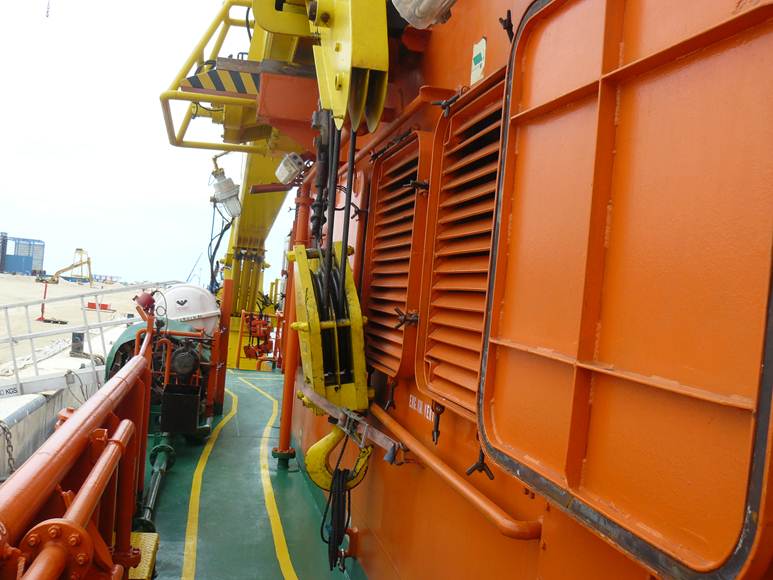
British Progress-Laurel USWC Lightering
Captain John M. Quagliano Jr. sent a picture of British Progress-Laurel USWC Lightering off the United States West Coast.
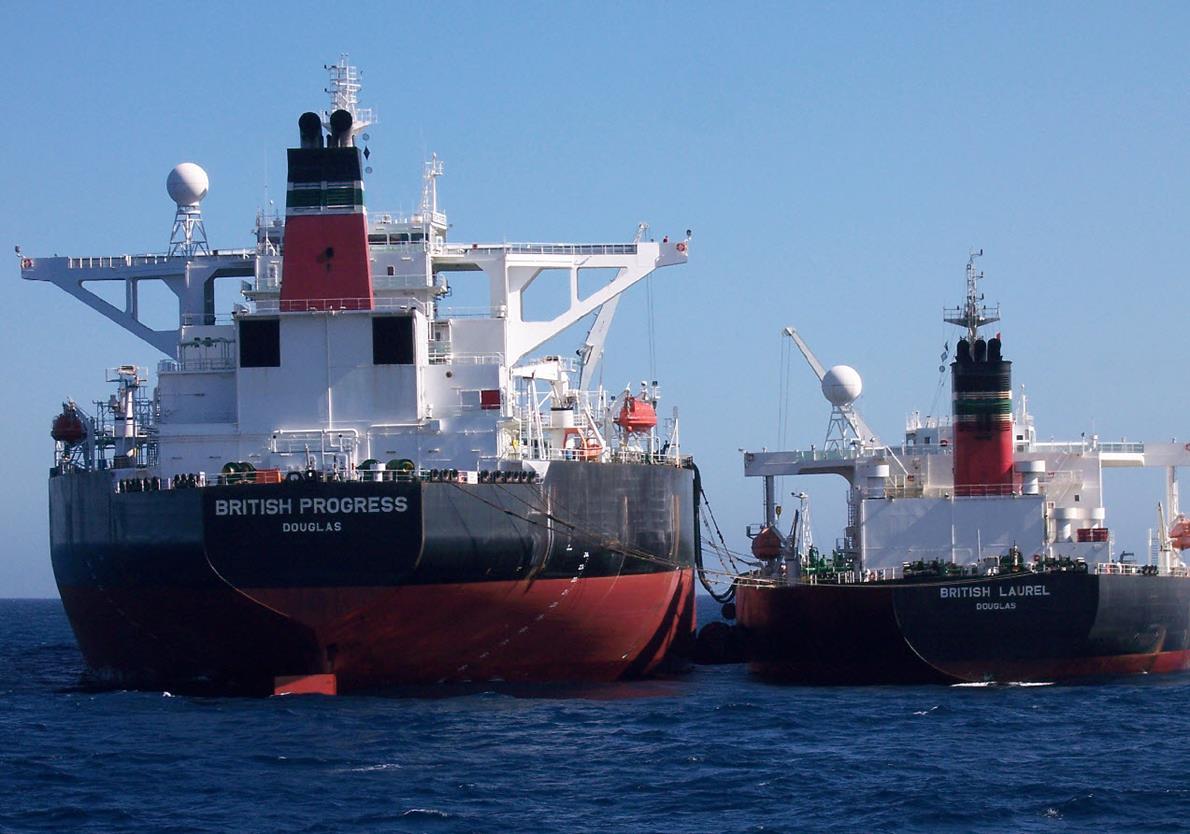
FPSO Peng Bo in Bohai Bay, China
Dana Woodruff sent ConocoPhillips’ entry, a picture of FPSO Peng Bo in Bohai Bay, China.
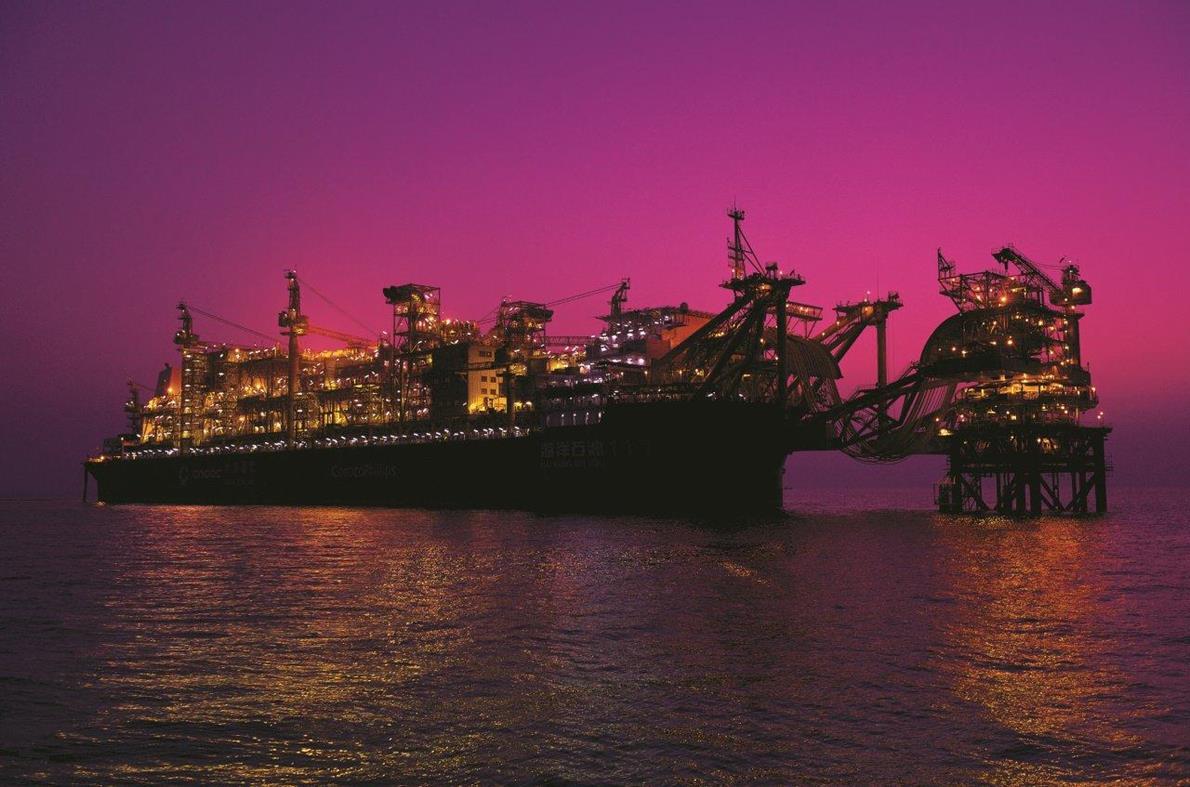
FSRU Toscana
Giovanni Giorgi wrote to tell us that the FSRU Toscana, which we wrote about back in August, has successfully completed the commissioning activities, including offloading and regassifying four LNG Carriers offshore.
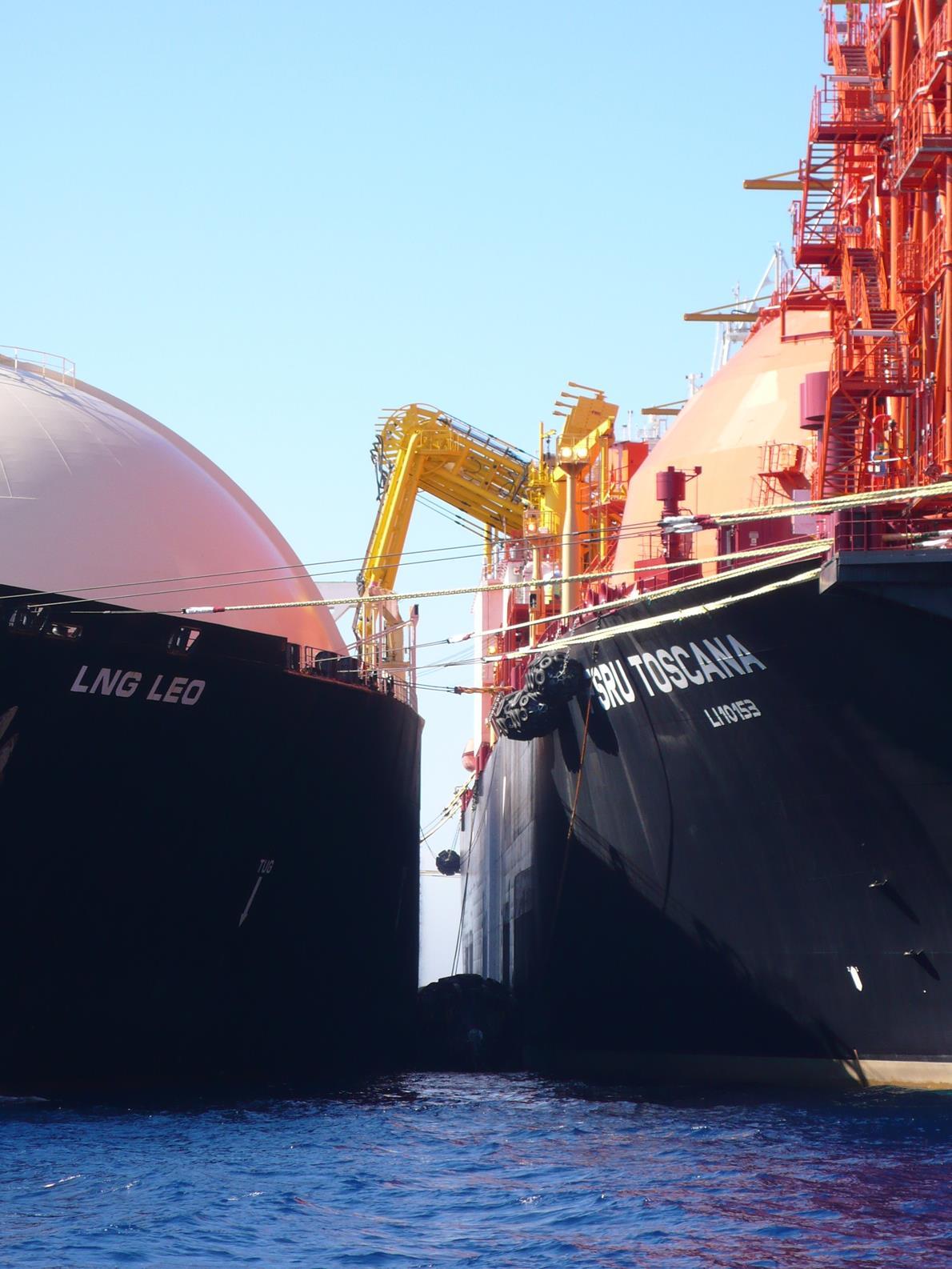
Icy Challenges, Primorsk Oil Terminal
While Icy Challenges is the title of the entry from Primorsk Oil Terminal.
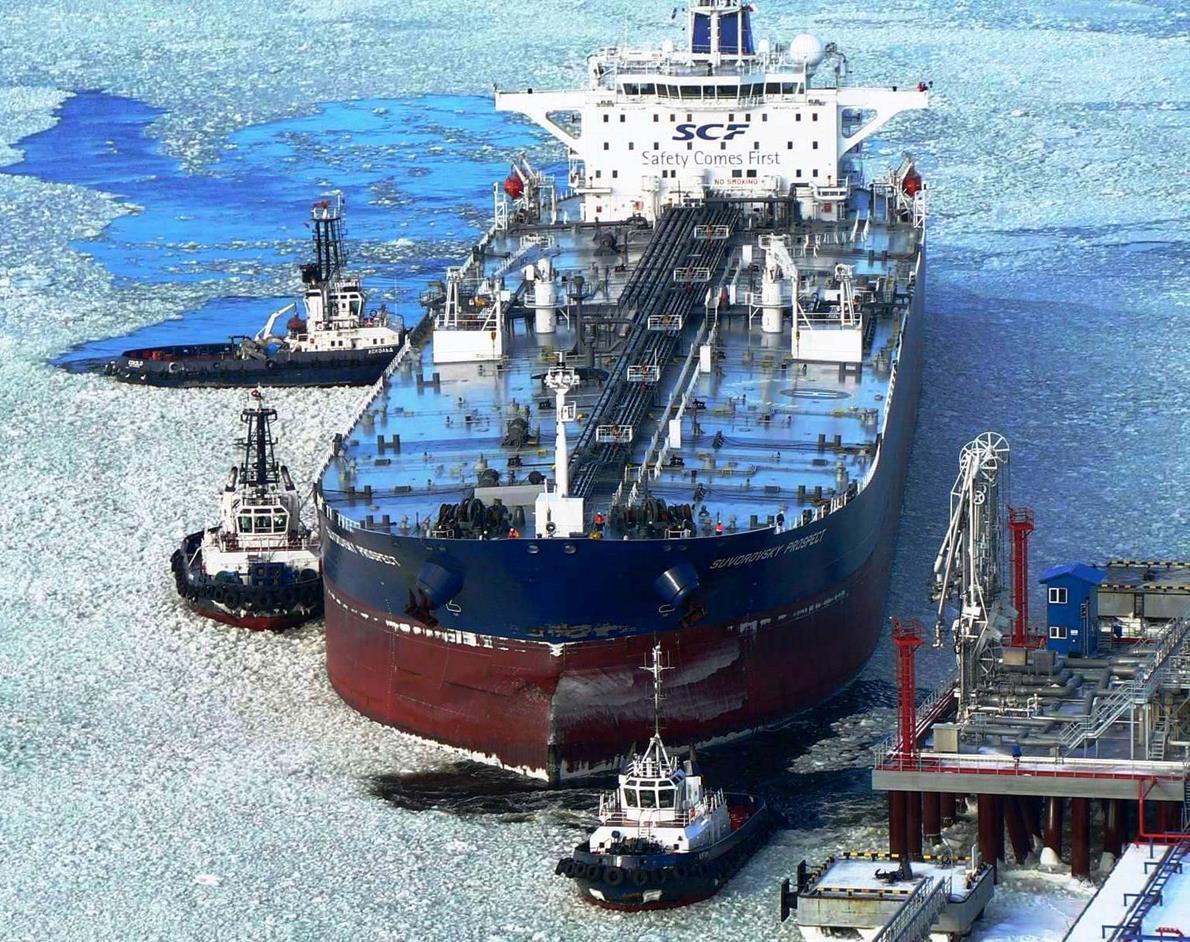
Rig Move in Baku, Caspian Sea
Rashad Shakarov sent a picture of Rig Move in Baku, Caspian Sea (picture 7). The Rig is Istiglal and the vessel is AHTS Islay, and the picture was taken during a recent OVID inspection.
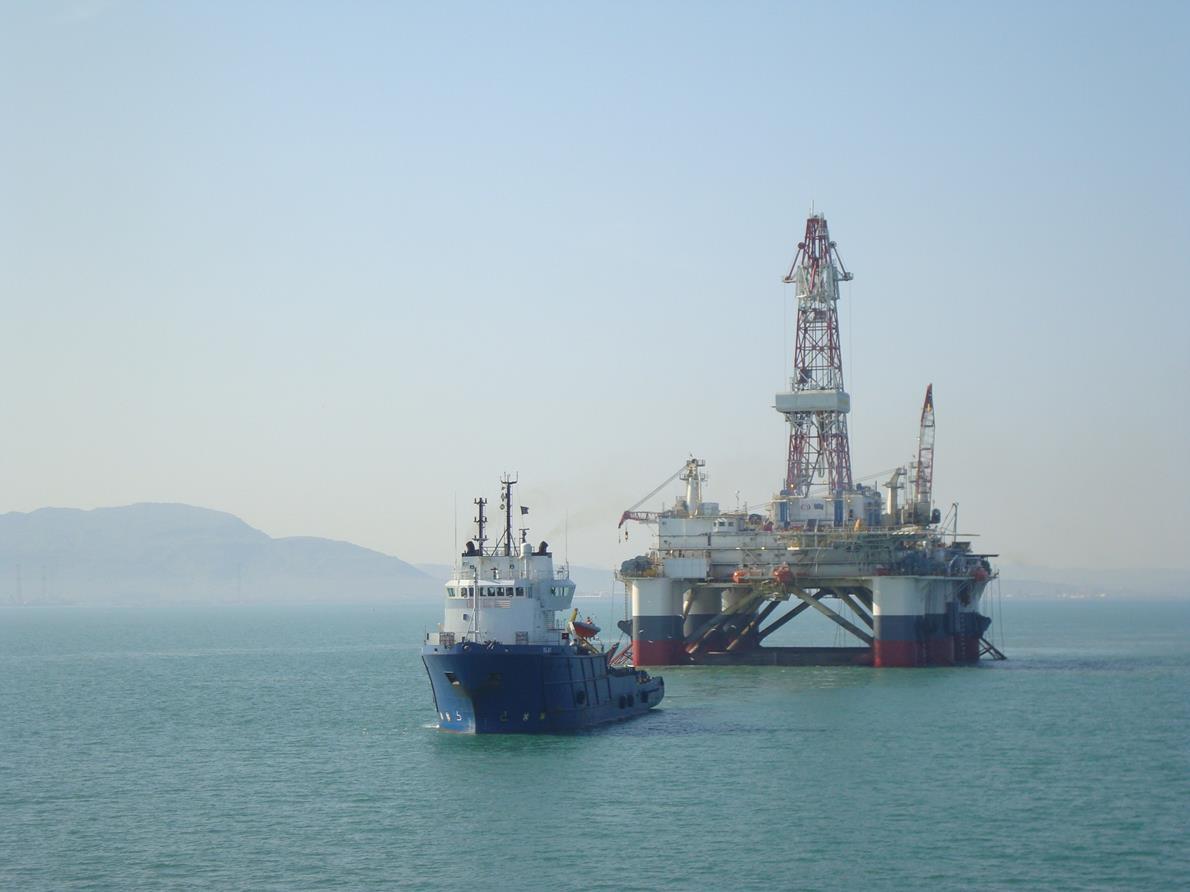
British Fidelity in Sembawang Dockyards Singapore
British Fidelity getting a coat of spectacular intersmooth blue on her propeller
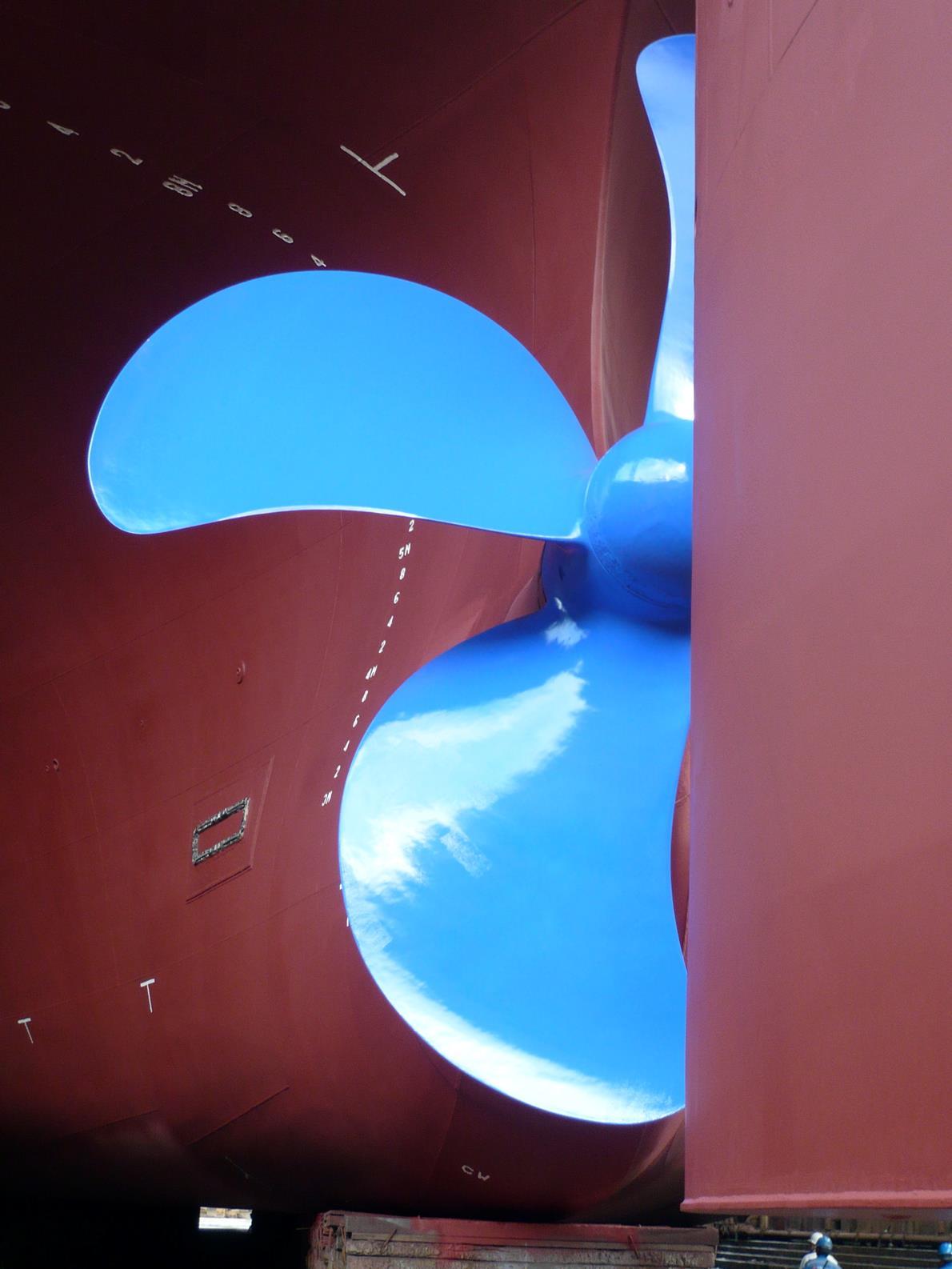
Captain Stefan Mamaliga
Captain Stefan Mamaliga sent pictures that he had taken while working over the Christmas period, doing a 'tango' with the weather. "This job is a novel which never finishes" he wrote, "I've been at sea since 1994 and I am still impressed with what nature can give to us."
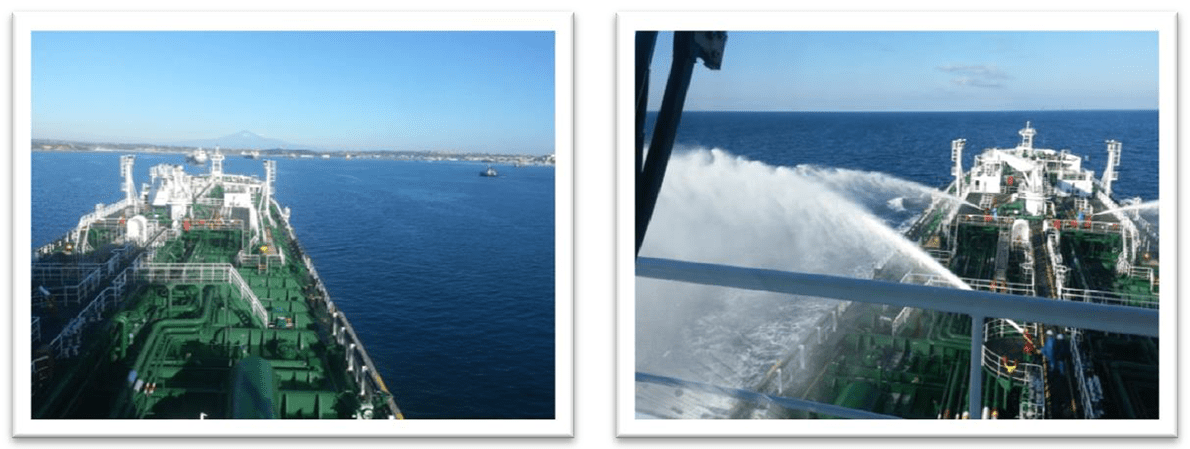
Steve Carr, NuStar Energy
Steve Carr from NuStar Energy sent in three images, titled 'what rules are different for dual lighterings', 'have you done a risk assessment of your STS operation' and 'when was your STS equipment last tested?'.
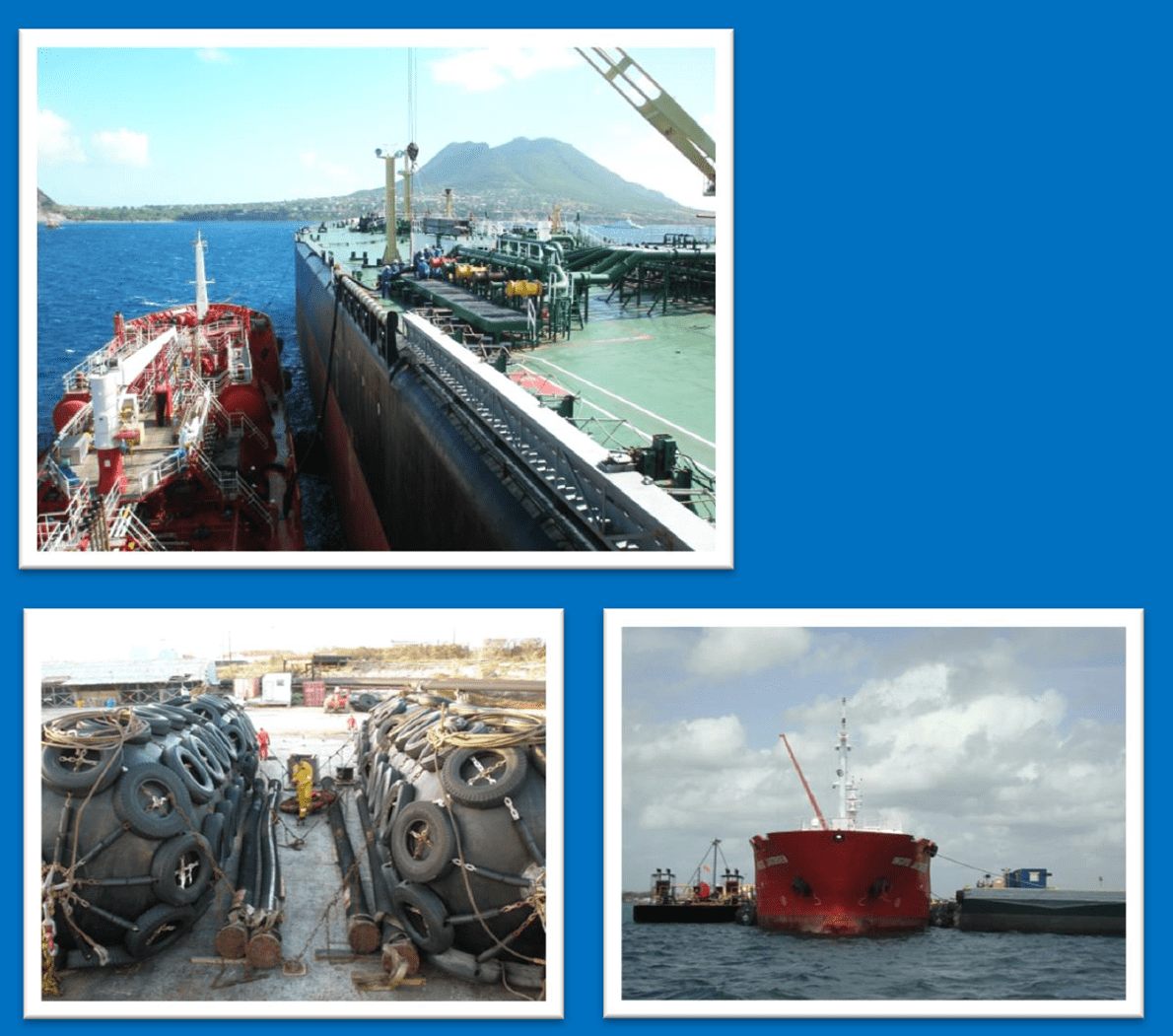
Clockwise from top: have you done a risk assessment of your STS operation, 'what rules are different for dual lighterings’, ‘when was your STS equipment last tested?’.
Andrew Smiley, Rescue of Syrian refugees
Andrew Smiley's entry is a striking image of a rescue in progress taken last September.
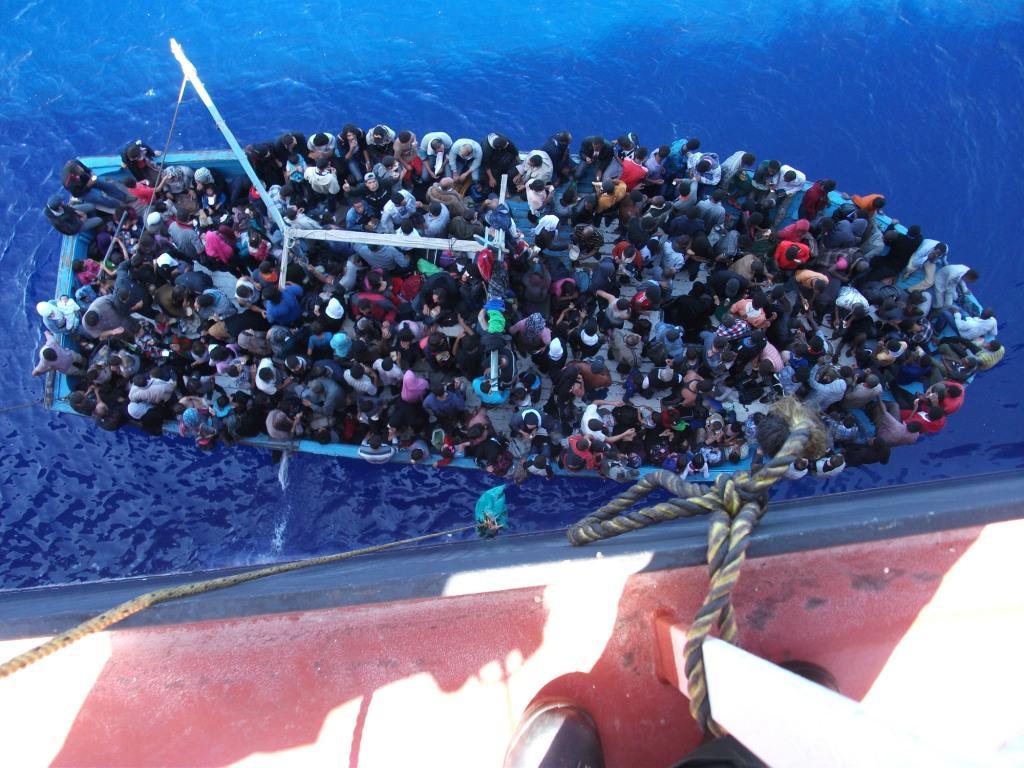
Chris Rowsell's picture from the archives
Chris Rowsell sent a picture from the archives. As he says, "It is now more than 40 years since Shell and Esso introduced their dedicated lightening ships in NW Europe. Shell's smallest was the 19,000 tons deadweight Halia which typically loaded heavy Venezulean crude for discharge at Stanlow or Dundee. The largest were Naticina and Niso of 120,000 deadweight, frequently loading by STS for Tranmere."
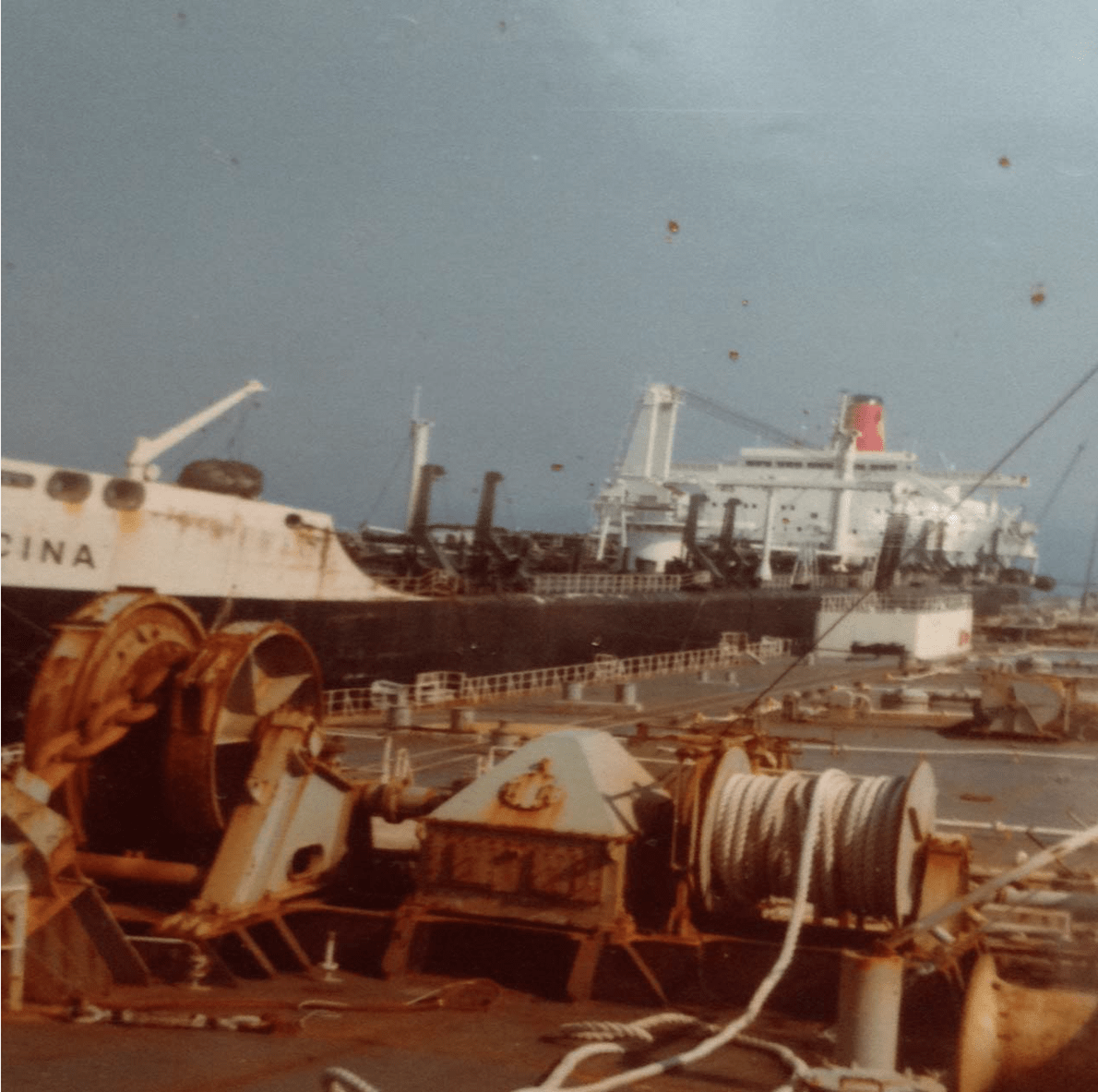
Not everyone sent in pictures though, we also had stories in from Yeo Liong Ho, who wrote to us with his thoughts on the Ship Inspection Report Programme (SIRE), asking if it is time for an update. And Leonard Nederveld told us about his experience of an Offshore Vessel Inspection Database (OVID) training course he attended recently. He wrote, "I would encourage anyone that is not sure how the system works and/or is new to OCIMF to get some training in how to use the system."
And the winner is...
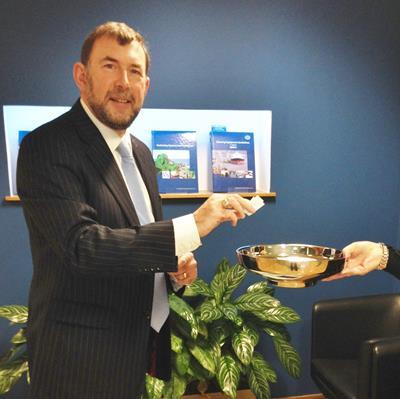
The winner of their very own copy of the Ship to Ship Transfer Guide is...
(drum roll please)
Dana Woodruff for ConocoPhillips
2014 SIRE courses
SIRE new inspector courses
- 3rd - 7th March 2014 Singapore (cancelled due to insufficient requirement).
- 31st March - 4th April 2014 London
- 8th -10th April 2014 CAT3 USA, Houston
- 9th -13th June 2014 USA, Venue TBA
- 22nd - 26th September 2014 Singapore
- 1st - 5th December 2014 London
On-line Registration has now been introduced. Sponsoring submitting members are able to send a link for candidates to register and approve all supporting documents prior to submittal to OCIMF. Instructions on how to do this have been sent but if you require further copies of the instruction manual please contact
SIRE refresher courses
- 27th - 28th February 2014 Singapore (Full)
- 15th - 16th April 2014 London (Full)
- 2nd - 3rd June 2014 USA, Venue TBA (Full)
- 18th - 19th September 2014 Singapore
- 23rd - 24th October 2014 Japan
- 25th - 26th November 2014 London
There is no charge to attend SIRE Refresher courses but costs associated with travel to and from the course, the inspector’s time, accommodation and meals are for their own account.
To reserve a place on a Refresher Course please contact
NOTE: All courses will only be run if there is sufficient attendees.
Costs associated with travel to and from the course, the inspector’s time, accommodation and meals are for their own account.
